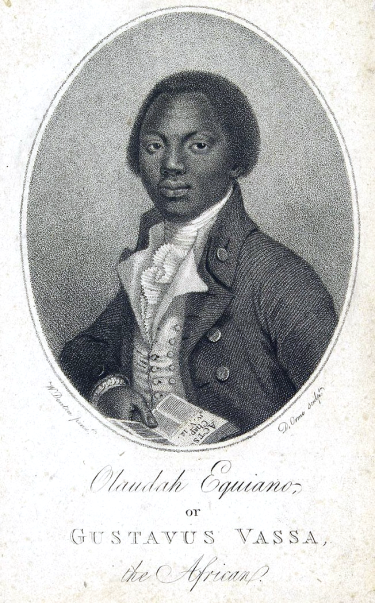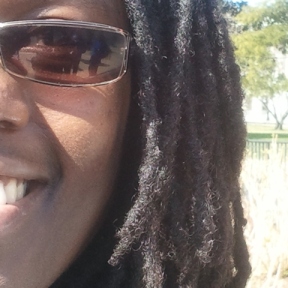My friend Teagan hosted a really powerful conversation this weekend about what it means to be an ally to a community and how to speak with its members rather than for or in place of them. [1]
I come into the ally/narrative conversation shaped not just by my direct experiences but also by the body of narratives that catalyzed the British and American anti-slavery movements.
Who May Speak for a Slave?
Narratives shaped the 18th-19thC conversation about slavery as a legal institution and cultural practice. Some of those narratives were written by former slaves and free people like Olaudah Equiano and Frederick Douglass. These storytellers recorded their experiences, published them, and toured their respective countries to speak about them. Other narratives were written by slaveholders/plantation owners to describe plantation life from their point of view and to justify the slave economy in the face of nascent criticism. Still other narratives were written by abolitionists like William Wilberforce and Harriet Beecher Stowe.
Not surprisingly, while Britain and the United States wrestled with slavery, the narratives with the most popular credit belonged to White abolitionists, slaveholders, and a certain kind of former slave: a Black gentleman or gentlewoman with refined social manners, self-taught or classically educated as far as he or she could be, and publicly pious. These were the narratives given platform space and amplified.
I’ve seen a similar dynamic in every social movement since abolition: not all stories are equal; social norm-compliance buys airtime and social credit; allies can be contradictory and not all endorsements are consistent. Given this inconsistency, I’ve learned not to conflate “anti-slavery” and “pro-Black” or “anti-discrimination” and “pro-equality.” Objecting to legal discrimination or social cruelty is not the same as fully supporting a population, especially once that population expects to be judged on its own terms and not by the measure of other groups. So those who work against social and legal discrimination may still hold onto overt and subtle prejudices about the people we work with: being a community’s ally in one sense does not necessarily mean being its ally in all senses.
Conflicting Support
Harriet Beecher Stowe’s _Uncle Tom’s Cabin_ (1851-2) exemplifies this. Its author, a White woman, was an abolitionist and teacher. Building on the stories of former slaves, Beecher Stowe depicted “kind” and “cruel” slaveholders, and also featured Black slaves as major, sympathetic characters. [2] By the 1860s, her story was galvanizing abolitionists and helping to turn public sentiment against the worst of the slave economy.
At the same time, the book relied on an abridged and patronizing view of Black people, and its benevolently racist stereotypes still surface in US media and public sphere conversation 150+ years later: the noble-faithful Uncle Tom, the loyal, religious, and ever insightful maid and wetnurse, the wild child. Beecher Stowe didn’t invent these tropes; she merely built her story around them. I do not question that she was an anti-slavery ally, considered slavery immoral, and had good intentions for her art.
A story can have a positive impact in the short and long term while also collapsing audiences’ view of reality and their view of the subjects represented in that story. In the same way, it is possible for a story to open up an audience’s view of trans* or gender variant or LGB people while also using conceptual shortcuts and assumptions that don’t serve the wider community well. [3] This doesn’t mean that only some stories should be told. I think it means that more stories should be told overall, more thoughtfully, more assertively in some cases, and more humbly in others. Stories are powerful and some of them can cast a long, long shadow. That scares me sometimes, but it also helps me to be conscious about my impact on people and communities I care about and not focus only on my hopes and intentions on their or our behalf.
The Stories I Tell
As part of its community outreach program and at the invitation of local college professors, PFLAG-Lubbock has organized panels of members to talk with counselors and teachers-in-training about identity, diversity, family dynamics, being an ally, and ways to increase understanding of gender and sexual minorities. I joined my first panel about three years ago. It was the first time in a long, long time that anyone had asked me to tell my story, to share from my experience what the world looked like from where I stood, to speak as myself. Whenever I spoke, it felt good that I was never offering classes a “single story” about my communities because those panels were always set up to support a broad range of perspectives and experiences. There were times when panelists disagreed and yet we didn’t gloss over those differences: there are already too many spaces where disagreement is misconstrued as disloyalty. “Diversity” spaces don’t need to mimic that.
I still tell my own story more informally from time to time, and I also speak about my perception of others and their stories, but whenever I do either of these things, I do so knowing that a story changes in the telling no matter who it’s about. In the years I told stories in Texas and in print, I noticed how much my narratives changed as I did. I drew from a consistent file of characters and events, but my interpretations evolved, and I also began recounting some experiences less while talking about what I’d learned from them more. If stories that I know are sound can vary this much, how much more might there be a fidelity gap between the stories others tell about themselves and the way I’d render their narratives? Because of our psychological and experiential distance, I can’t tell The Story of You as well as you can, and you can’t tell The Story of Me as well as I can.
One of my life lessons is this: When I see and experience this world, I do so as me. I never do so as another soul, never as they’d see or experience this life, and never as they’d wish I’d see it. So whenever I speak outside my experiences, I necessarily project in some way; I’m perceiving, translating, re-framing, and then re-publishing. I’m in constant conversation with others, too, and we’re all shaping our stories together, Yet the only original story I can tell is my own.
I find it keeps me honest to recognize that this is what it means for me to tell stories about my life and about others’ lives; this is what it means to build knowledge and understanding with others. It also seems to help my peers and audiences to acknowledge that this is what we’re doing, because in coming to grips with this, we’re challenged not to seek a fixed and universal truth from the stories we tell to each other. For the Christian fundamentalists I know, that’s a tough sell, but then some of them also struggle with the premise that our particular experiences are not inferior to an idealized and universalized experience: universalized experiences, after all, are only a slice of the world used to colonize the rest.
When I do speak up on my own behalf or with others, my stories about myself and my perceptions aren’t less important than others’ stories and perceptions. Stories I’d tell about myself are not less important than those others will tell about me. But they are different. They can’t be substituted without loss. And the wider world often treats my stories as less important. It also treats the differences I naturally add to the mainstream as annoyances or something “more difficult” that we’ll all “get to later.” That approach has real relational consequences and we live those consequences every day. I think the whole is diminished because of this approach. So I speak up about that when possible.
I don’t believe any of this means we all need to stop telling stories or building knowledge together. I believe it means we need to tell more stories, not fewer. And all of us, the storytellers used to being sources of The Story, need to recognize that our special standing is a dysfunction that we can and should dismantle in all the ways we can.
[1] Today is the birthday of an ally who stood with me as I learned to speak as myself and for myself. I still hope to offer others the kind of wholeness she offered me. CKR: b. April 1954 – d. April 2010. C., thank you so much.
[2] The “kind” and “cruel” slaveholder distinction only makes sense on one side of the table—not my side!

